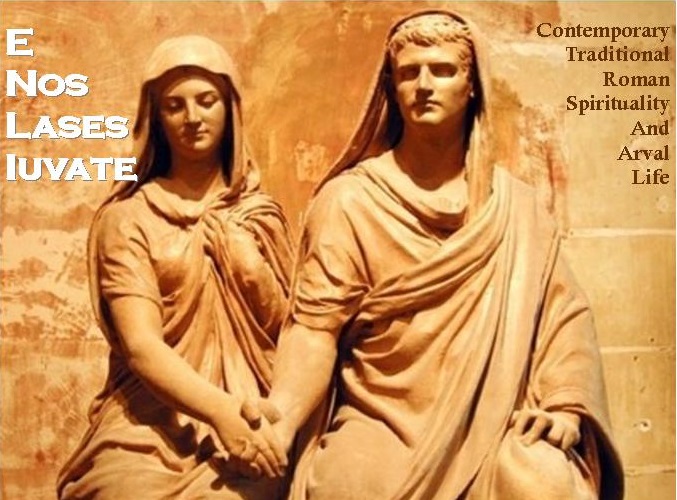I have to say that I'm not a vegetarian or vegan. I rarely eat meat, but I eat it. I eat meat not very often basically because I do not particularly like it.
In addition, living in Italy, I have the opportunity to eat a very varied menu of vegetables, many different kind of cheese, cereals, legumes, pasta, etc... It is not necessary to eat meat because there are really so many good alternatives. I think also that, reducing the meat consumption, I'm living definitively in a healthy way.
But, I repeat, I eat meat.
I have to say that, with regards to food in general and meat in particular, I have been influenced also by the approach our Roman Ancestors had in the past about these issues. According to Roman Traditional Spirituality eating meat had to pass through a rite: usually that of sacrifice or hunting. In short, eating meat was not a mechanical act, as it is today for many people in modern (supposed) advanced society.
It is quite evident that nowadays we cannot eat meat after performing a sacrifice: it is not practically possibile. Many of us are also not so used to attend (not to say "make") the killing of an animal. When I was a boy (many years ago...) living in the countryside, the slaughter of an animal was a rather common event: if one wants to eat meat, he had to kill an animal. I still remember those experiences with a strange feeling of discomfort.
Now we can easily eat meat just going for example to a supermarket where pieces of animals are presented in a way in which nobody can recognize the identity of the animal as a (ex) living being. One can eat kilos of meat being completely unaware about what really existed "before".
I repeat: we cannot do sacrifices or particular rites for eating meat. But we can re-gain awareness of the sacrality of food in general and of meat in particular as gifts. When eating meat it should be important not to forget that we are receiving the gift of the life of an animal.
One can eat meat without exaggerating, always on the base of on the criteria of simplicity and frugality. The Traditional Roman Spirituality is placed in an intermediate position between being exclusively vegetarian (such as the Pythagoreans) or totally carnivores (as was the case for some groups linked to Dionysus-Bacchus who also ate raw meat).
It is also necessary to remove the image of the Romans habits when eating with their degenerate and corrupted inclination to extravagant and exaggerated foods, as for example described in the Petronius' Satyricon. This is rather the image of the lifestyle of the freedmen (as clearly emerge even in the Satyricon itself): they had no traditional spiritual knowledge.
The traditional approach to food, including meat consumption, has always been inspired by simplicity and frugality. I am still basing myself on these principles: I inspire my everyday life to these principles even with regards to food. I consider these small acts as a positive contribution to really and correctly Colere Deos / Deas .
By the way, it might be interesting to read " De esu carnium ", " Bruta animalia ratione uti " and " De sollertia animalium " (works easily available in the bookshops) by Plutarch. In them I have found many reflections not only on eating meat, but also on the respect should be paid to these "traveling companions".


Nessun commento:
Posta un commento